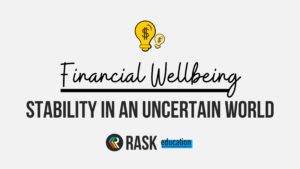The Management Expense Ratio (MER) is an estimate of the total costs for investing in a managed fund, Exchange Traded Fund (ETF) or index fund.
For a primer on ETFs, watch the video below.
What the MER Includes:
- Ongoing management fees (typically paid to the fund/ETF issuer)
- Operating expenses (licensing, compliance, auditing, etc.)
For example, a company charges a management fee of 1% but also incurs costs of 1% per year (legal, compliance, etc.), so the MER is 2% (1% + 1%).
What the MER doesn’t include:
- Performance fees (typically paid for outperforming a target/benchmark)
- Buy/Sell spread (expressed as X%/X%, this is the cost to buy and sell units in the fund/ETF)
- Adviser fees
- Brokerage and platform fees (fees for the software used to automatically enter and exit an ETF/fund)
What is an Indirect Cost Ratio or ICR?
As if we weren’t confused enough, there’s another fee that is often quoted in a managed fund or ETF’s Product Disclosure Statement (PDS) called the Indirect Cost Ratio.
The ICR is an estimate of the costs for investing in a fund/ETF. These are typically the fees which are deducted from the fund’s assets (i.e. investments), rather than paid directly by the fund.
What’s a PDS? Watch the video below to find out.
The ICR can include:
- Management fees
- Performance fees
- Compliance/legal, auditing and accounting fees
The ICR can make it easy to compare different managed funds, especially if they have performance fees.
Once all of these costs and fees are added up, they are expressed as a percentage of fund’s total assets (aka NAV).
ICR – Superannuation
The indirect cost ratio is an important consideration when assessing Superannuation funds.
To find out why, as well as what to look out for, visit our blog post: Understanding your Super fund’s fees and costs
Want to see the impact of fees?
Check out our managed fund fee calculator which shows you the impact of paying higher, or lower, management fees over your investing timeframe.
Hint: the difference can be huge!
More resources
We have a number of related blog posts and videos that cover several topics we’ve just mentioned, including:
Managed funds
Index funds
[ls_content_block id=”27643″ para=”paragraphs”]



